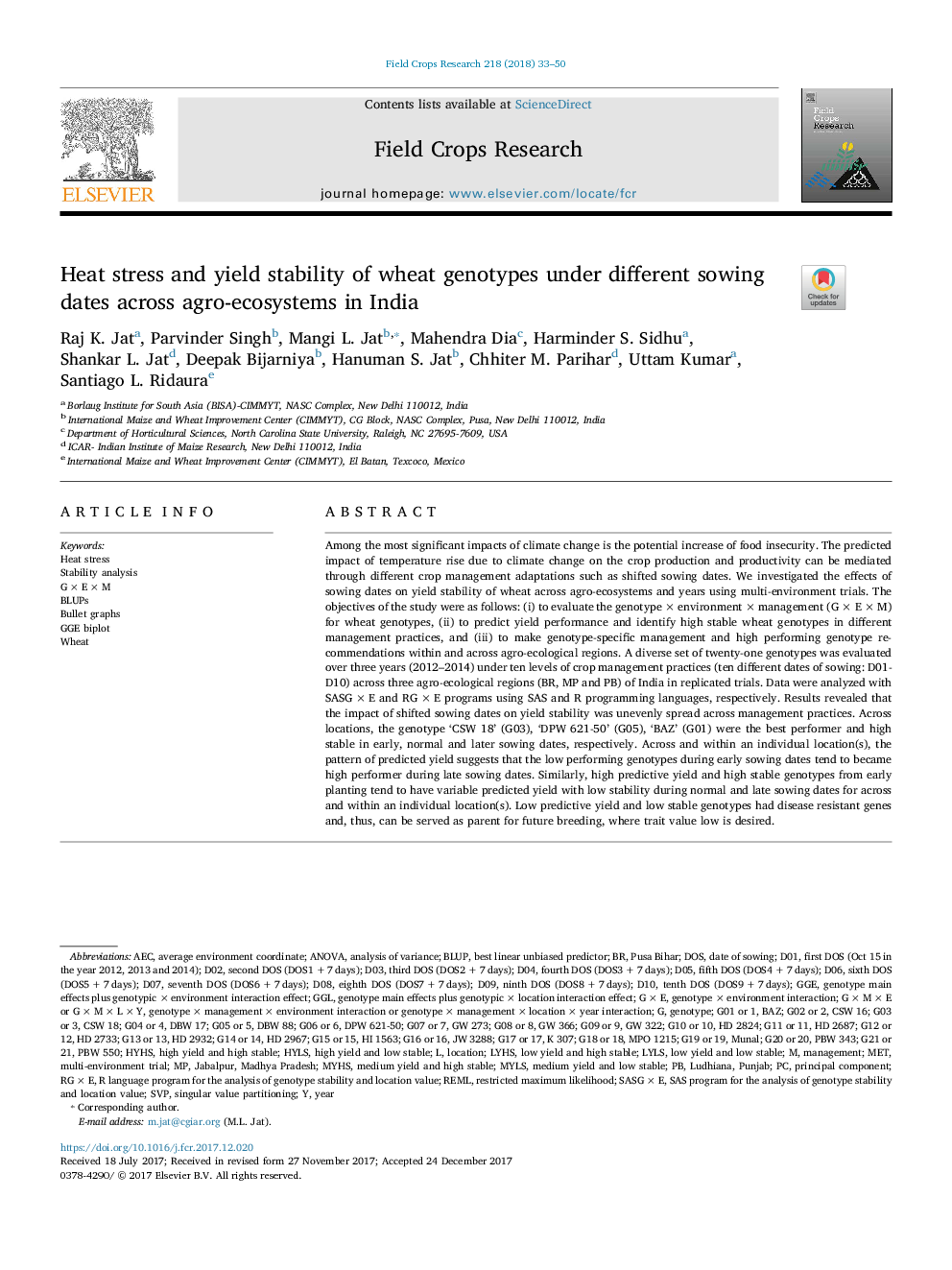ترجمه فارسی عنوان مقاله
استرس گرما و ثبات عملکرد ژنوتیپ های گندم تحت شرایط مختلف کاشت در سراسر اکوسیستم های زراعی در هند
عنوان انگلیسی
Heat stress and yield stability of wheat genotypes under different sowing dates across agro-ecosystems in India
| کد مقاله | سال انتشار | تعداد صفحات مقاله انگلیسی |
|---|---|---|
| 109282 | 2018 | 18 صفحه PDF |
منبع

Publisher : Elsevier - Science Direct (الزویر - ساینس دایرکت)
Journal : Field Crops Research, Volume 218, 1 April 2018, Pages 33-50

